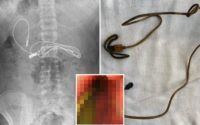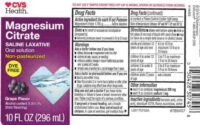Doctors share treatment tips for minor and severe bites
Spending time outdoors may sometimes mean you’ll have to deal with insects and their penchant for biting, including mosquitoes, horseflies, ticks, ants or spiders.
Sure, bug repellents exist. But they’re not foolproof and not everyone has them on hand at all times.
Most bites are harmless.
However, there are times when special care is needed if the body responds poorly to the bug bite.
Here’s what experts say to know and do if you’re dealing with either minor or severe bug bites.
Most bug bites can be treated at home
Dr. Brian Mangum, an associate professor of medicine and epidemiologist at the University of Health Sciences Antigua, told Fox News Digital that most bug bites can be treated at home without the need for attention from medical professionals.
“Generally, minor bug bites can result in itching, swelling and a sense of stinging that will subside and go away in a few days,” Mangum said.
These symptoms also occur, he said, after a bug sting — as well as from stings from certain bug species (i.e. hornets, fire ants and bees) can cause allergic reactions, particularly in those who are susceptible to anaphylaxis.
Here’s how to treat minor bug bites
It’s important to wash a bug bite site with soap and water, said Mangum.
In cases of stings, the bug’s stinger should be removed from the site before washing, he said.

After the bug bite has been sanitized, Mangum said he recommends putting ice, a cold wet cloth or a cold water bottle on the inflamed patch of skin for about 20 minutes to reduce the swelling and the pain.
“You can also apply calamine lotion, a paste made of baking soda and water, or 1% hydrocortisone cream, which is available over the counter in your drug store,” Mangum said.
“These will also help reduce the swelling.”

If itching and irritation persist around the bite site, Mangum said it’s generally OK to take an antihistamine medication in the form of Benadryl (diphenhydramine) and non-prescription pain relievers such as acetaminophen or ibuprofen.
“Remember to follow the manufacturer’s directions,” he warned.
When taking any medications, it’s always wise to consult with a physician first.

When to reach out about severe bug bites
There are rare instances when medical attention may be necessary for a bug bite, say medical professionals.
Usually, this is for an anaphylactic reaction — a severe and potentially life-threatening allergic reaction that can cause breathing difficulties, fast heartbeat and lightheadedness.
“You should not hesitate to call 911 if you have trouble breathing, if there is swelling of the face, including the lips, eyelids and throat, or if you feel dizzy or pass out,” Mangum told Fox News Digital.
“Hives, nausea, vomiting and diarrhea are also warning signs of a severe reaction,” he said.
If anaphylaxis is suspected, the Centers for Disease Control and Prevention (CDC) recommends assessing airways, breathing and circulation.
The agency also says that people who are experiencing anaphylactic symptoms should be placed in a supine position — meaning they’re lying horizontally with their head and torso facing up.
“Those with a history of allergic reactions to bug bites, known as anaphylaxis, should speak with their doctor about carrying an epinephrine injector, which can be given quickly during an emergency and can save lives,” Mangum said.
Avoid home remedies; watch for infection
While most bug bites and stings can be taken care of at home with over-the-counter creams and medicines, DIY home remedies should be avoided, according to Iza Correll, physician associate, founder and CEO of OVI Healthcare, a zero-cost hospital care nonprofit. She is based in Kenya.
“Do not apply any home remedies or remedies that a doctor has not recommended,” Correll told Fox News Digital.
“This topic is quite familiar to me, as our children’s hospital is based in Suna Migori, the Kenyan town whose name directly translates to: ‘Here, mosquitoes make you hit yourself,’” Correll said. “It certainly does live up to that name.”
It’s important not to scratch a bug bite “excessively” because that can lead to an infection, she added.
“If the bite does not heal properly or becomes infected, it is crucial to seek medical attention,” Correll warned. “Signs that the infection may worsen include fever, swelling, redness or discharge from the wound.”
Regarding the symptoms of mosquito bites, the CDC notes that more severe reactions can occur in these groups: children; adults bitten by a mosquito species they haven’t been exposed to previously; and people with immune system disorders.
It also says that people experiencing more severe reactions may have the following signs: a large area of swelling and redness; low-grade fever; hives; and swollen lymph nodes.
A person should contact a healthcare provider if symptoms worsen or if there are questions or concerns.


